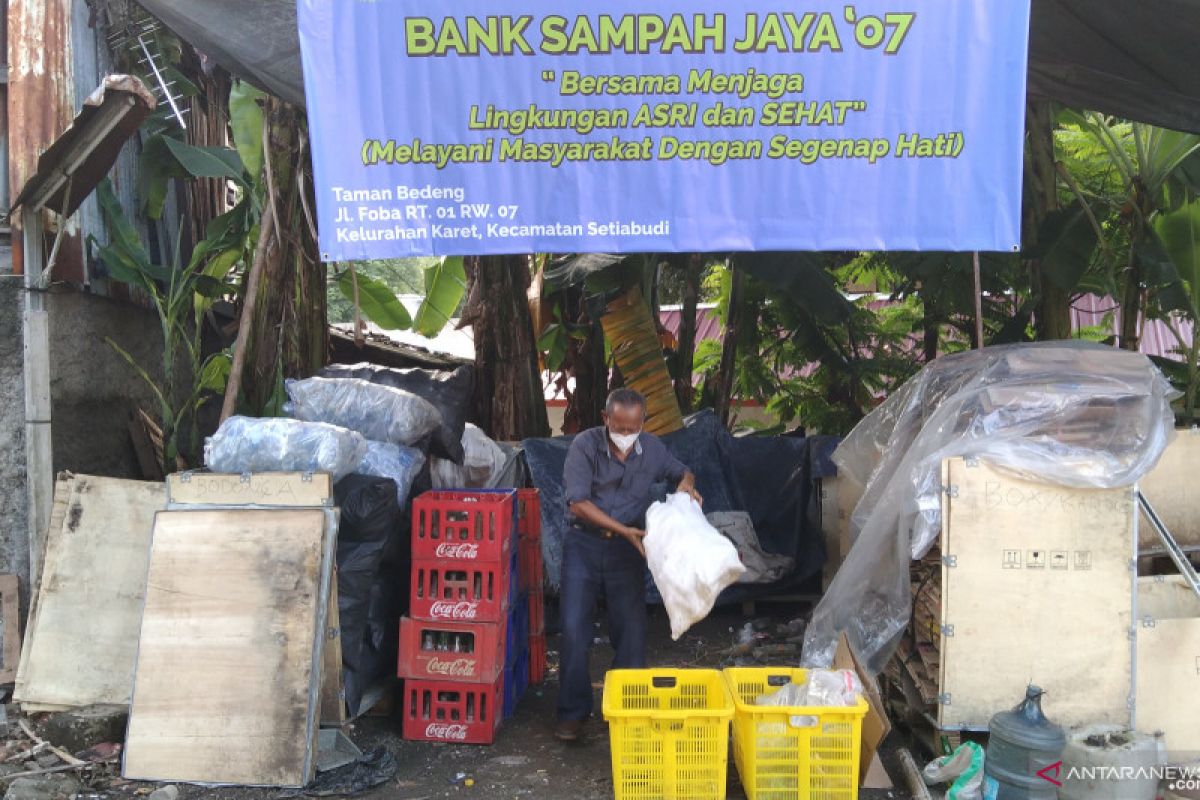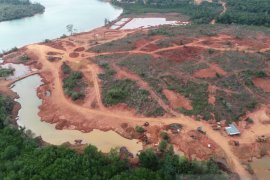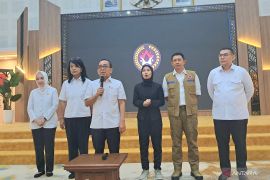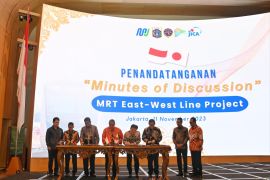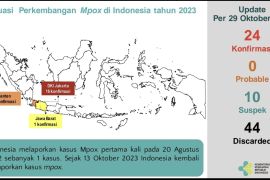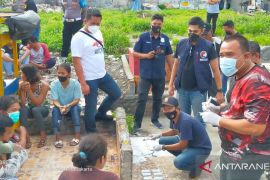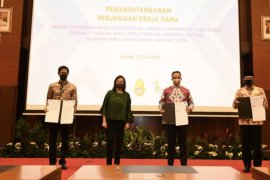Inorganic waste comprise paper, cardboard, plastic bags, hard plastic, and iron, aluminum, and copper cans and bottles.Jakarta (ANTARA) - The West Jakarta government claimed that the quantity of inorganic waste in the garbage bank during the pandemic had reduced drastically wherein residents earlier contributed up to 12 tons daily.
"Now, the range is about four to eight tons per day," Subarna Martadinata, supervisor of the West Jakarta Environment (LH) office, concurrently coordinator of the waste bank socialization division,said here on Tuesday.
Martadinata attributed the decrease in the quantity of waste to the application of social activities restrictions policies and prohibitions on activities in offices and schools.
Generally, he noted that school and office areas had become sources of garbage. Undoubtedly, the garbage banks in these two regions were often full within a few weeks, he pointed out.
Related news: Trash banks produce Rp15.7 billion
"Schools are closed, and restrictions are in place for offices. There is an effect," he remarked.
Once the garbage is collected, the inorganic waste will be collected by Sudin LH's trucks to be deposited in the main garbage bank located at the Sudin LH Dormitory at Bambu Larangan, Cengkareng Sub-district, West Jakarta, he revealed.
That is where the inorganic waste will be recycled by several private parties cooperating with the city and provincial governments, he pointed out.
So far, he assessed that residents remained enthusiastic about collecting inorganic waste to be deposited in 803 waste banks located across hamlets (HW), urban villages, and sub-districts in the West Jakarta area.
They intentionally collect inorganic waste and discard it into the garbage bank to get some cash.
Related news: Proper trash management improves local economy
"Inorganic waste comprise paper, cardboard, plastic bags, hard plastic, and iron, aluminum, and copper cans and bottles," he pointed out.
Earlier, Vice Minister of Environment and Forestry Alue Dohong had stressed that waste management was a collective responsibility of the government, businesses, communities, as well as individuals.
"The government cannot work by itself since garbage comes from various places, such as households, factories, markets, and other locations," he remarked during the "Role Sharing in Cleaning Indonesia" virtual discussion, accessed from here.
To this end, the involvement of each section of society becomes crucial and raising awareness regarding the issue has to be done on a continuous basis, he emphasized.
Related news: Data will be more transparent, synchronized post-COVID: minister
Related news: BPJAMSOSTEK seeks to increase MSME participation
Translator: Walda M, Kenzu T
Editor: Fardah Assegaf
Copyright © ANTARA 2021
